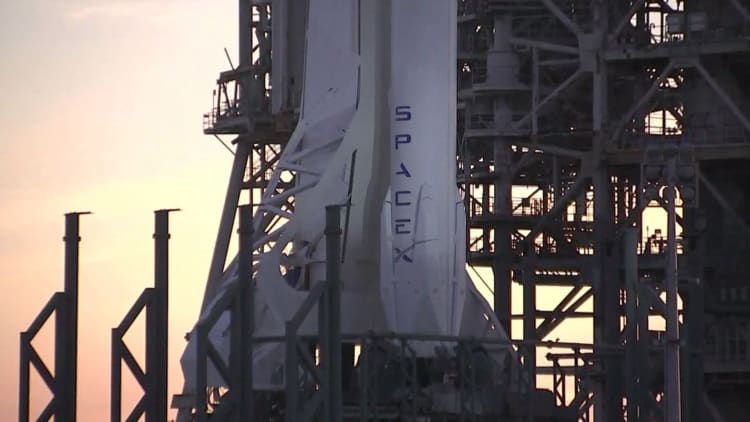
Elon Musk's SpaceX plans to start launching satellites into orbit in 2019 to provide high-speed internet to Earth.
In November, the company outlined plans to put 4,425 satellites into space in a Federal Communications Commission (FCC) filing. But the document gave little detail on the timeline.
However on Wednesday, Patricia Cooper, SpaceX's vice president of satellite government affairs, said later this year, the company will start testing the satellites themselves, launch one prototype before the end of the year and another during the "early months" of 2018. Following that, SpaceX will begin its satellite launch campaign in 2019.
"The remaining satellites in the constellation will be launched in phases through 2024," Cooper said before the Senate's Committee on Commerce, Science and Technology on Wednesday.

Musk's space exploration firm has developed technology that allows rockets to take off, deposit their payload into space, and then land back on earth to be reused. , SpaceX sent one of their reused Falcon 9 rockets back into space to send a communications satellite into orbit.
This technology cuts costs, something Cooper referred to.
"SpaceX intends to launch the system onboard our Falcon 9 rocket, leveraging significant launch cost savings afforded by the first stage reusability now demonstrated with the vehicle," the executive said.
The 4,425 satellites will operate in 83 orbital planes at altitudes ranging from 1,110 KM to 1,325 KM.
SpaceX argues that the U.S. lags behind other developed nations in broadband speed and price competitiveness, while many rural areas are not serviced by traditional internet providers. The company's satellites will provide a "mesh network" in space that will be able to deliver high broadband speeds without the need for cables.
"In the future, these satellites would provide additional broadband capacity to the SpaceX system and further reduce latency where populations are heavily concentrated," Cooper said.
Latency refers to the time it takes for data to travel between two sources. SpaceX said its system will reduce latency. There will also be some infrastructure required on the ground which would allow SpaceX to "allocate broadband resources in real time, placing capacity where it is most needed and directing energy away from areas where it might cause interference to other systems, either in space or on the ground".
This will alleviate the challenges such as digging trenches, laying down fiber and dealing with property rights issues, Cooper said.





